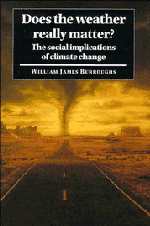2 - The historical evidence
Published online by Cambridge University Press: 26 February 2010
Summary
‘Where shall I begin, please your Majesty?’ he asked.
‘Begin at the beginning’, the King said, very gravely, ‘and go on till you come to the end: then stop.’
Alice's Adventures in Wonderland, Chapter 12
For us the beginning has to be the role of climatic change in the rise and fall of ancient civilisations. This is the subject of heated debate among archaeologists, climatologists and historians. The kernel of this debate has been the lack of reliable evidence of what precisely happened to the climate. While the broad sweep of changing conditions can be inferred from available data and conclusions can be drawn about rises and falls in, say, rainfall, translating this into explanations of the success or failure of societies is more problematic. So the fragmentary clues of what led to collapse have often been open to a variety of interpretations. This has led to a polarisation of views which was not always helpful. What lay at the heart of the matter was failure to appreciate how limited the knowledge of the real nature of past changes in the climate was. In recent years, an increasing amount of evidence from proxy climatic records has been collected from a wide variety of sources (e.g. tree rings, lacustrine deposits and pollen records). These new data are throwing a different light on the causes of waxing and waning of ancient civilisations.
Lost civilisations and dark ages
Lacunae in orderly progress of history, punctuated as it is with dramatic collapses in civilisations and blank periods where no records exists, exert a peculiar fascination over historians.
- Type
- Chapter
- Information
- Does the Weather Really Matter?The Social Implications of Climate Change, pp. 16 - 52Publisher: Cambridge University PressPrint publication year: 1997



